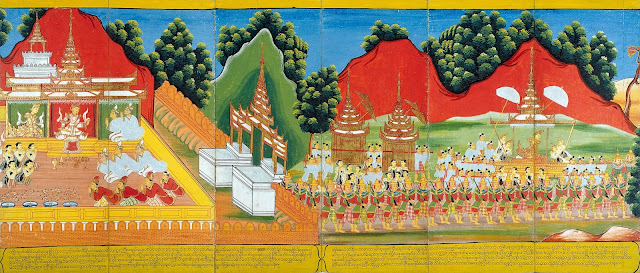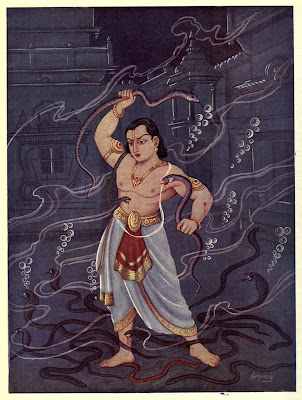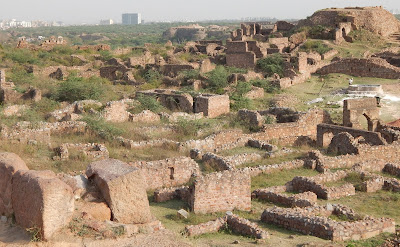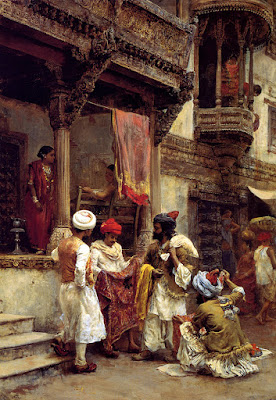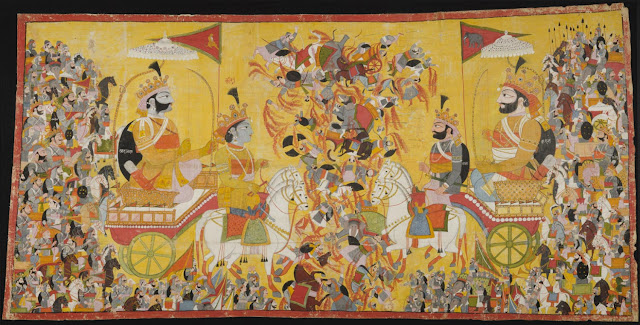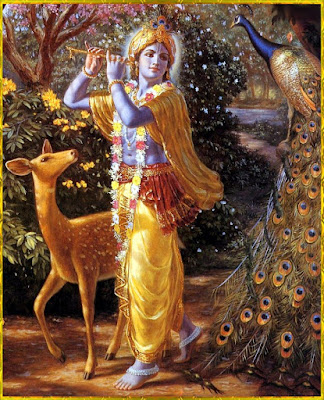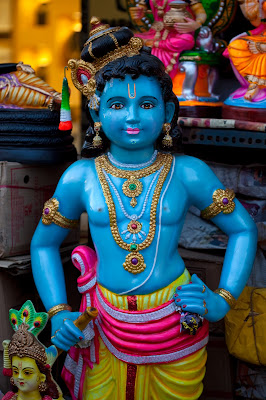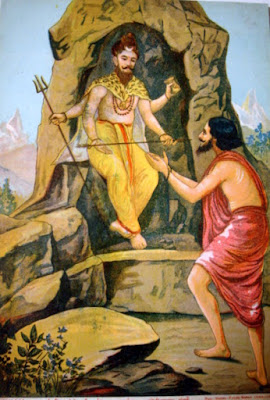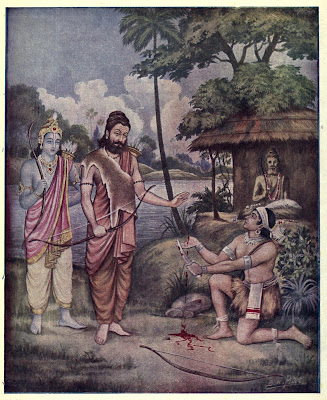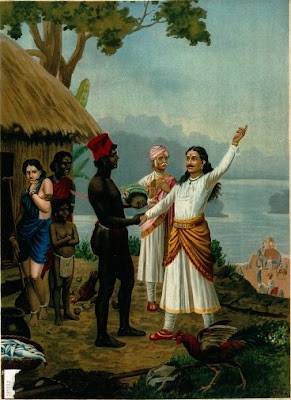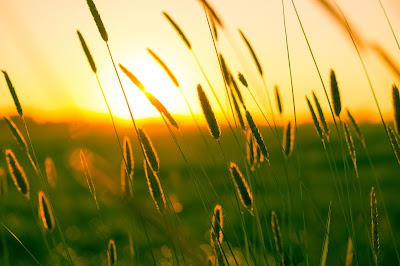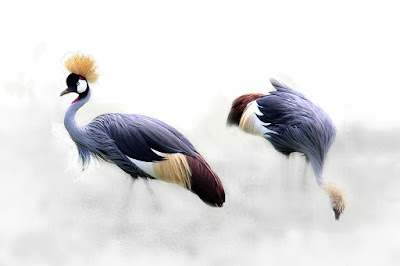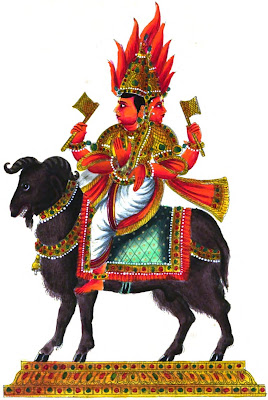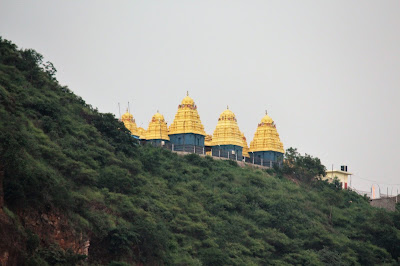Reading: The Life of Buddha, Part D
The Buddha was convinced by Brahma to find disciples and spread his knowledge to the world, so the Buddha began looking for a worthy disciple who could grasp the complex nature of the Law and who would not keep the knowledge to himself. The Buddha's first thought was of Rudraka, the son of Rama, who he had encountered earlier in his travels. Rudraka was a good man who the Buddha believed would understand his teachings and spread them liberally throughout the land. Rudraka, however, had died 7 days earlier. The Buddha then thought of Arata Kalama, the master he briefly followed after leaving his father's kingdom. Arata Kalama was an intelligent and virtuous man who the Buddha trusted would teach others how to find Nirvana. Arata Kalama, however, had died 3 days earlier. The Buddha finally came to the decision to find his five former disciples. The disciples had left the Buddha after he gave up his practices of sever austerities. When the men were following the Buddha, ...
